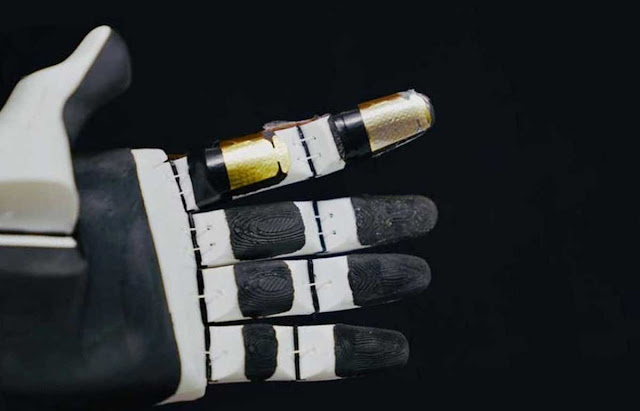A team of researchers from the National University of Singapore has developed artificial skin that can detect temperature and pressure. It can then send these signals 1,000 times faster than the human nervous system. Researchers already imagine this innovation applied to robotics.
Artificial skin could also be used to improve advanced prostheses, to restore feelings to individuals.
An artificial skin composed of physical sensors
Benjamin Tee and colleagues at the National University of Singapore have developed artificial skin that can detect temperature, pressure, and flexion. It is made of rubber, composite plastic and a multitude of physical sensors, of only 1 square millimeter.
Each of the sensors has a unique electrical impulse to make it identifiable. When a sensor is requested, it sends a signal to a single receiver, and this, 1000 times faster than the human nervous system. Several signals can be sent simultaneously: the sensors are connected together with a wire.
Reflect at best the human touch
The research team has designed several types of sensors to best reflect human touch. Moreover, the sensors of our skin send signals at a frequency of 1 kHz, or 1,000 times per second. Those of the artificial skin can send signals at 9 Mhz, that is to say, 9 million times per second.
To validate this operation, the researchers put the artificial skin on a prosthetic hand, then made him grab a cup of hot coffee. The three types of sensations studied (texture, pressure, and temperature) have been recorded. What to make Benjamin Tee and his colleagues at the National University of Singapore dream about the future of robotics.
Indeed, they already imagine robots whose whole body would be covered with this artificial skin, allowing them to better feel their environment. Yet they must be able to interpret these sensations ...








0 Comments